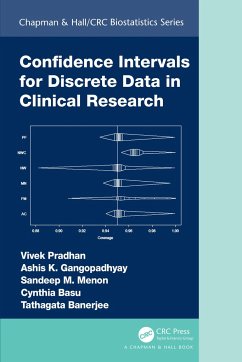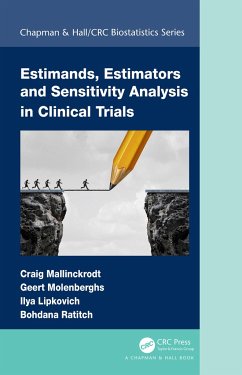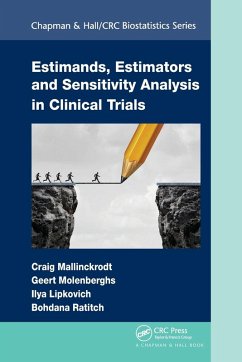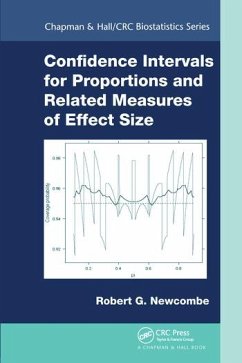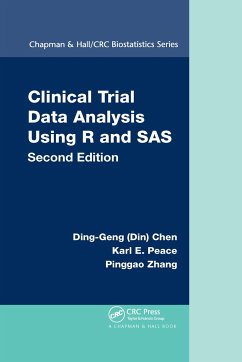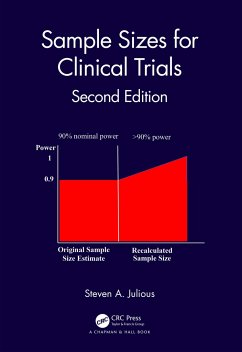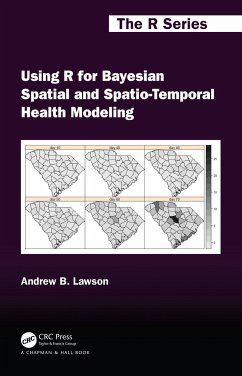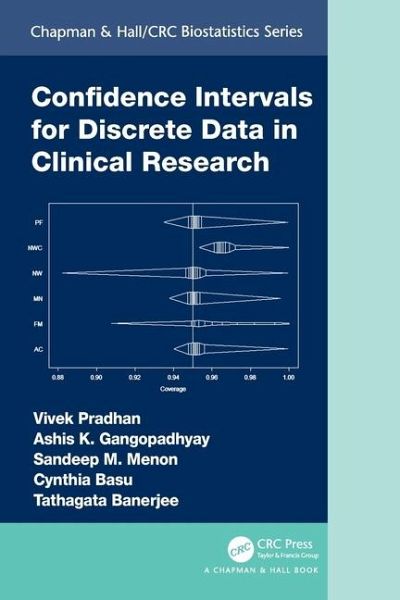
Confidence Intervals for Discrete Data in Clinical Research
Versandkostenfrei!
Versandfertig in 6-10 Tagen
53,99 €
inkl. MwSt.
Weitere Ausgaben:

PAYBACK Punkte
27 °P sammeln!
Confidence Intervals for Discrete Data in Clinical Research is designed as a toolbox for biomedical researchers. Analysis of discrete data is one of the most used yet vexing areas in clinical research. The array of methodologies available in the literature to address the inferential questions for binomial and multinomial data can be a double-edged sword. On the one hand, these methods open a rich avenue of exploration of data; on the other, the wide-ranging and competing methodologies potentially lead to conflicting inferences, adding to researchers' confusion and frustration and also leading ...
Confidence Intervals for Discrete Data in Clinical Research is designed as a toolbox for biomedical researchers. Analysis of discrete data is one of the most used yet vexing areas in clinical research. The array of methodologies available in the literature to address the inferential questions for binomial and multinomial data can be a double-edged sword. On the one hand, these methods open a rich avenue of exploration of data; on the other, the wide-ranging and competing methodologies potentially lead to conflicting inferences, adding to researchers' confusion and frustration and also leading to reporting bias. This book addresses the problems that many practitioners experience in choosing and implementing fit for purpose data analysis methods to answer critical inferential questions for binomial and count data.
The book is an outgrowth of the authors' collective experience in biomedical research and provides an excellent overview of inferential questions of interest for binomial proportions and rates based on count data, and reviews various solutions to these problems available in the literature. Each chapter discusses the strengths and weaknesses of the methods and suggests practical recommendations. The book's primary focus is on applications in clinical research, and the goal is to provide direct benefit to the users involved in the biomedical field.
The book is an outgrowth of the authors' collective experience in biomedical research and provides an excellent overview of inferential questions of interest for binomial proportions and rates based on count data, and reviews various solutions to these problems available in the literature. Each chapter discusses the strengths and weaknesses of the methods and suggests practical recommendations. The book's primary focus is on applications in clinical research, and the goal is to provide direct benefit to the users involved in the biomedical field.





